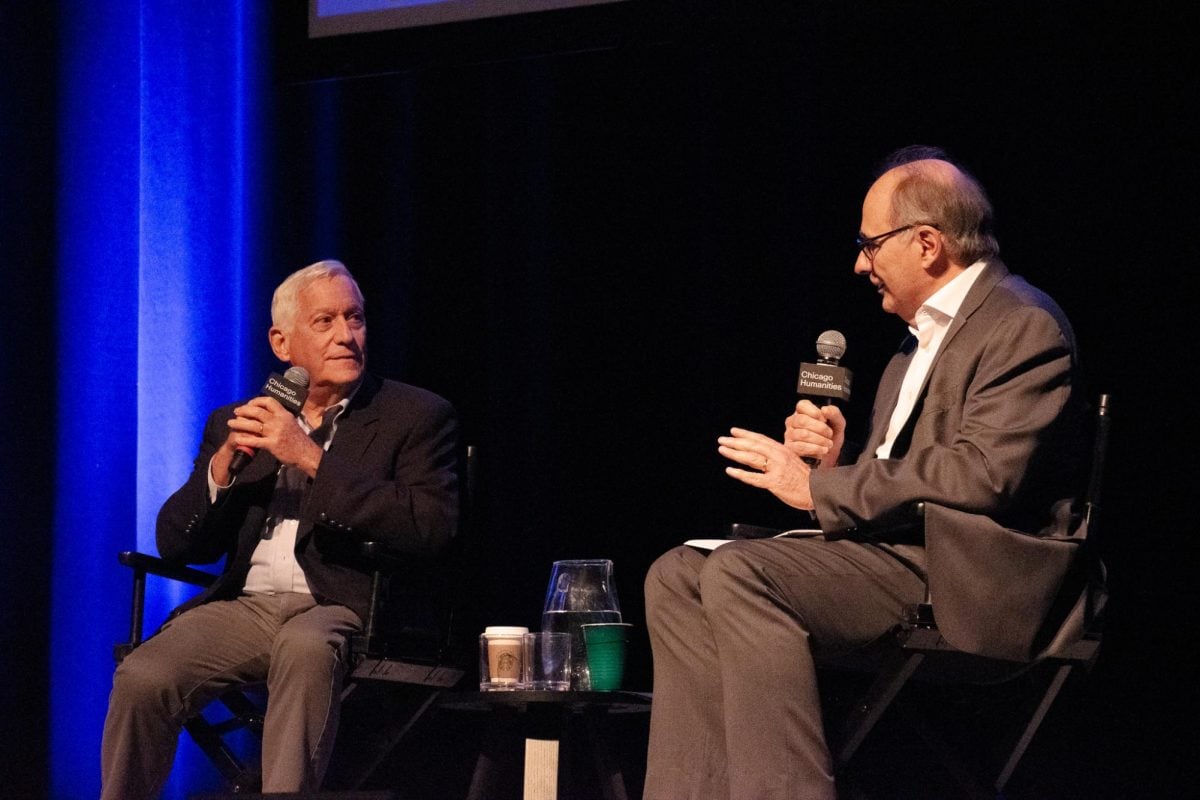American author, academic and former CEO of CNN Walter Isaacson gave hundreds of audience members a behind-the-scenes look into the mind of Elon Musk — CEO of SpaceX and Tesla, and owner of X, formerly known as Twitter — Saturday morning in Cahn Auditorium. The event was one of 13 hosted by the Chicago Humanities Festival at Northwestern for its annual Evanston Day.
During the hourlong talk, Isaacson touched on politics, private space exploration, Musk’s leadership of X and his relationship with his family. He said the psychological abuse Musk endured from his father as a child has caused him to retreat into a vision of himself “as a character in a video game.”
“His ideas of truth and justice are these almost ‘Captain Underpants’, ‘X-Men’ comic books things — which, to some extent are admirable — which are three big epic quests,” Isaacson said. “One is sustainable energy on the planet. Number two is making us multiplanetary … And third is protecting us against artificial intelligence and robots going rogue.”
Isaacson served as editor of Time magazine from 1996-2001 and chair and CEO of CNN from 2001-2003 before leaving the network to lead the Aspen Institute, a nonpartisan think tank.
Isaacson has since written biographies of historical figures including Benjamin Franklin, Steve Jobs and Albert Einstein. His latest book — a 688-page profile of Musk — was published last month.
Isaacson said he’s drawn to figures “who do have a feel for the inner workings of technology,” noting his disappointment with academics in the humanities who fail to understand the basics of science.
The talk was moderated by David Axelrod, who served as chief strategist and senior advisor to former President Barack Obama.
Axelrod now serves as a senior fellow at the University of Chicago Institute of Politics, a nonpartisan extracurricular designed to invoke political interest, and a CNN senior political commentator. Axelrod noted that many of Isaacson’s subjects have attained status and wealth by going against the status quo.
“I’m so interested in the psychology of genius at that level, because it’s disruptive genius,” Axelrod said. “It requires you to say: ‘I don’t care what the rules are. I don’t care what the norms are. I don’t care how we did this for 1000 years. I’m gonna do it a different way.”
About 650 people bought tickets for the event, according to Chicago Humanities Publicity Manager Stephanie Storey.
Isaacson, a professor of history at Tulane University, also shared how his experience as the head executive at CNN informs the way he sees the current media landscape.
“I’m one of the five or six people who has proven on the national stage that I don’t know how to run CNN,” Isaacson said. “And I think in (an) era in which we have artificial intelligence scraping information, misinformation, we’re going to have to place a higher value on reliable good information … and it means that people will pay a premium in some form for information that’s reliable.”
Joan Ewing said she drove about four hours from Lewistown, Illinois, to attend the talk with her husband.
Like Isaacson, Ewing is the child of an engineer — an experience she said makes Musk a particularly interesting subject for her.
“I was impressed by how very quick (Isaacson and Axelrod) both are and how they bounced off each other with their cleverness, drawing from many different sources in their experiences,” Ewing said.
Email: jacobwendler2025@u.northwestern.edu
Twitter: @jacob_wendler
Related Stories:
— Greg Lukianoff, Yascha Mounk, Rikki Schlott talk free speech at NU
— Bob, Nate, Erin Odenkirk talk new book with Peter Sagal at NU
— Fox News’ Bret Baier discusses new book, current events at NU



















